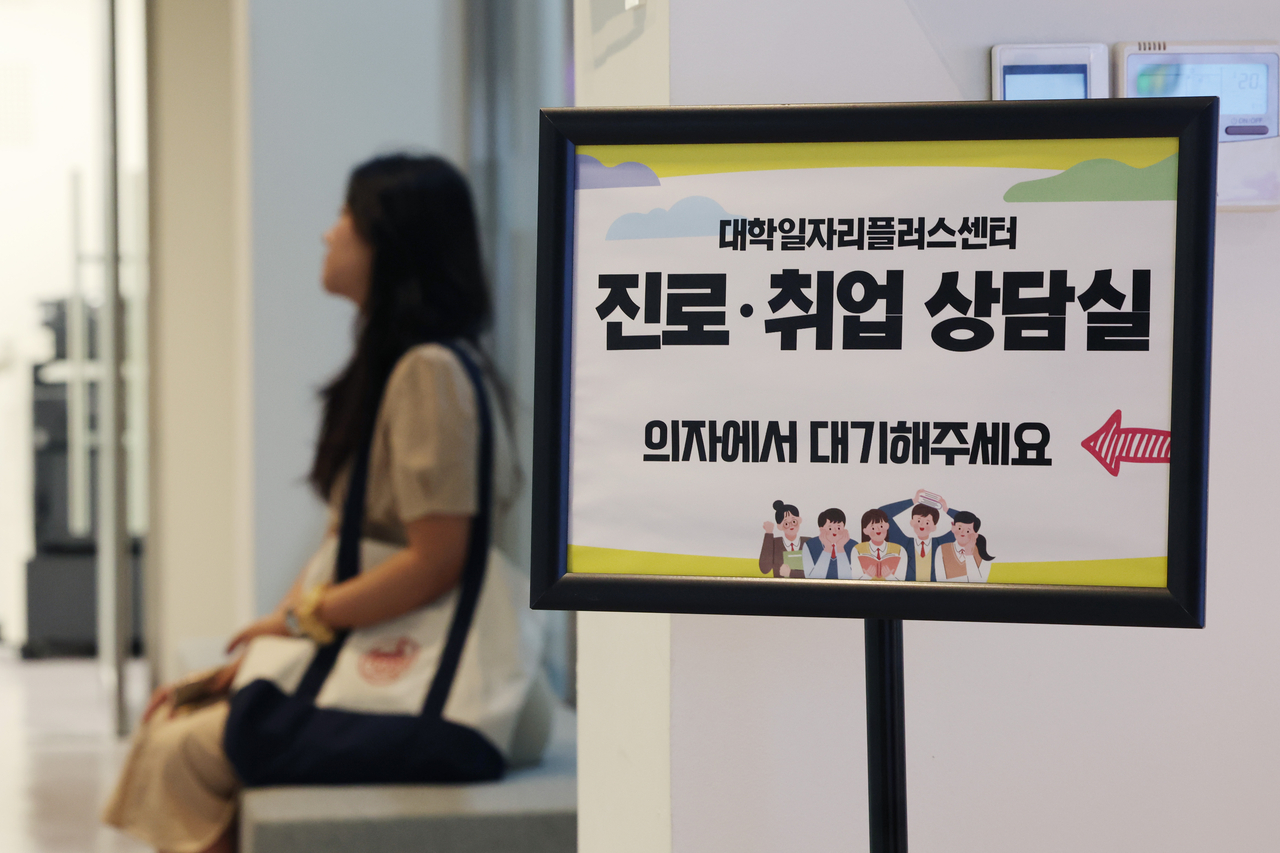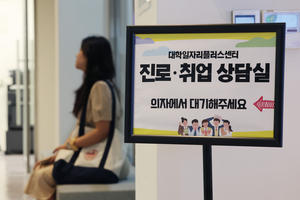An increasing number of highly educated young people are neither working nor seeking employment
 A student waits for a consultation at a university job center in Seoul on July 24. (Yonhap)
A student waits for a consultation at a university job center in Seoul on July 24. (Yonhap) An estimated 53.4 trillion won ($38.5 billion) in potential economic output may have been lost between 2019 and 2023 due to an increasing number of young South Koreans who voluntarily stayed out of the workforce, a new study showed Monday.
The report by Professor Lee Mi-suk of the Changwon National University, commissioned by the Federation of Korean Industries, quantified the economic impact of a youth population that chose to “rest” during the five-year period. This refers to those between the ages of 15 and 29 who were neither employed nor looking for a job and had no particular reason such as academic study, training or housework. Those who were unemployed but looking for a job, or were in the process of obtaining credentials for future employment, were not considered to have rested.
The study found that 8.89 trillion won could have been added to the economy in 2019 if voluntarily unemployed youth had worked that year, followed by 11.45 trillion won in 2020, 10.36 trillion won in 2021, 11.17 trillion won in 2022, and 11.51 trillion won in 2023.
The estimates are based on assumed monthly earnings equivalent to 80 percent of the salaries of their working peers, which ranged from 1.55 million won in 2019 to 1.79 million won in 2023. Legally-mandated insurance fees were deducted, and the adjusted monthly income was multiplied by 12 to estimate the potential net income the group would have contributed to the economy each year had they been employed.
More college graduates choosing not to work
The percentage of people in the 15-29 age demographic who were resting increased from 4.48 percent in 2019 to 5.47 percent in 2023. Compared to the total population, 0.93 percent of young Koreans rested in 2023, up from 0.84 percent in 2019.
The youth population itself decreased from 9.66 million to 8.79 million during the same period.
Data shows more young people who received higher education chose not to work. In 2019, 159,000 with a bachelor’s degree or higher rested, but the number increased to 184,000 in 2023.
“Many young people who could be receiving high salaries are resting, causing economic loss (to the country),” the report said.
A report last week by Statistics Korea showed that 421,000 Koreans in their 20s rested in July, marking an all-time high for the month since the government started compiling the statistic. The employment rate for the 15-29 group marked a 0.7 percent decrease on-year, in contrast to an increase in employment for the general population.
Lee’s study suggested that the government should approach the issue from multiple angles, such as expanding scholarships based on work-study programs and career guidance for young people to motivate them to seek employment.
minsikyoon@heraldcorp.com
